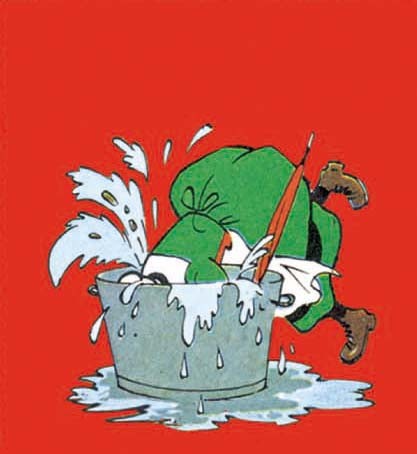Pang and Ch’tis

We are exploring PACA (Provence-Alpes-Côte d’Azur), our new neighborhood, and I discover that les Provençaux speak French so you can understand them! They even pronounce all the letters, including some that aren’t in the word. And they’re volubiles. In Vallauris (pronounced valorisse), it’s no use being in a hurry with the boulanger, who makes wonderful pain (pronounced pang). He just taps his head and says: “Mais vous n’êtes pas bieng?” (“Are you feeling sick?” Implicitly: “What’s the rush?”)
As elsewhere, regional accents can provoke negative reactions, even though studies show most French people can’t accurately recognize the differences among them. French speakers really only distinguish between le Nord and le Midi (south). But they tend to dislike the accents other than their own.
When Brigitte noticed l’accent du Midi was replacing the parigot (Paris street slang) influence on my American accent, she fed me her stéréotypes about les gens du Midi: voleurs (thieving), menteurs (prone to exaggeration), paresseux (lazy). She quoted a so-called Provençal proverb: “Si tu as une envie de travail, assieds-toi et attends que ça passe!“ (If you feel like getting a job, sit down until you feel better.) Wanda, une Niçoise transplanted to Paris, laughed. “Julia, at least you’re bien placée (in the right place) to know if we deserve our bad reputation”.
In 1905, one of the first French BDs (bandes dessinées, i.e., comic strips) invented Bécassine (the word means “snipe,” as in the bird), a plouc (hick) who arrives in Paris wearing her coiffe bretonne (traditional Brittany lace cap). Comically highlighting the alienation between city and country, peasant and bourgeois, she became so well known that one of the definitions for bécassine in the Trésor de la Langue Française is “femme stupide ou ridicule“. Bretons were long offended by her image but now view Bécassine with nostalgia, as representing the unspoiled good-heartedness of France in times gone by. She was honored by a French stamp in 2005.
Astérix (a series of 50 French BDs and films) constantly parodies regional stereotypes, ridiculing preconceptions like Normands who never give you a straight answer, Gascons who never keep their word, cheapskate Auvergnats and, of course, Southerners who are always taking la sieste! The caricatural hostility between Paris and province (Provence is a French province), and the regional pride (and cuisine) of Corsica, Normandy, Brittany, Gascony or Auvergne become pretexts to get children-and adults-to laugh at their own prejudices while teaching them geography. (For some reason the French often claim to be hopeless in geography. Of course they do think France is shaped like a hexagon.)
Currently, the wildly successful comedy Bienvenue Chez les Ch’tis-pronounced sh-tee-(Welcome to the Sticks), has sold more tickets than any French-made film in history, including France’s most expensive film to date, Astérix aux Jeux Olympiques. At this writing, approximately 25 percent of France has been to see this gentil (charming) farce about a postal clerk from sunny Provence forcibly relocated to a small town in France’s far north, the Nord-Pas-de-Calais region along the Belgian border. Shot in Bergues (pronounced “berk“-which is also slang for “yuck”-pop. 4,200), not far from Dunkerque, it uses gags about torrential rains starting at the boundary and hard-drinking, unemployed rednecks who eat bread slathered in stinky cheese dipped in chicory-flavored coffee, while speaking an incomprehensible dialect called Ch’timi, whence their nickname, “les Ch’tis“. They replace “s” with “ch” (you know that singer Chtevie Wonder?), call their buddies “biloute” (regularly confused with biroute, slang for the male sex organ) and end every sentence with hein? (huh? pronounced a little like a duck quacking). All this slapstick has an underlying message: le Nord can be a wonderful place. “People arrive in tears”, someone says, “and leave in tears”. Although the humor, given the accents and dialect, is untranslatable, director and star Dany Boon suggests a similar “fish out of water” plot for a U.S. remake-simply transfer a disgraced New York cadre (executive) to a small town in Texas.
Share to: Facebook Twitter LinkedIn Email
Leave a reply
Your email address will not be published. Required fields are marked *



